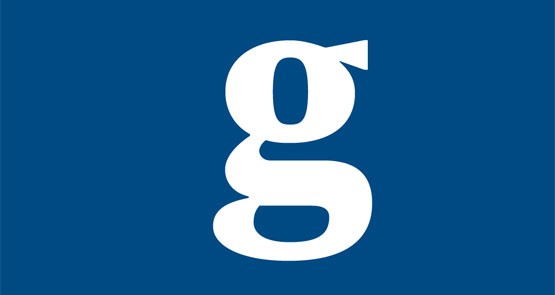
The local arm of The Guardian will not be affected by the cost-cutting going on in the organisation more broadly, local editor Emily Wilson assured an audience at the Melbourne Press Club on Thursday afternoon.
“Australia is completely insulated from that, as is our American operation,” she said. Questioned on how long this would be the case, she added, “we’re a separate financial body”.
“We don’t cost London anything and we never will.”
Wilson’s comments follow reports from The Guardian in the UK over the weekend that its 835 million pound cash pile (A$1.68 billion), previously anticipated to last decades, had shrunk by 100 million pounds (A$205 million) in merely a year. At the current rate of cash burn, The Guardian would be bankrupt within the decade.
To ensure the long-term viability of The Guardian, editor-in-chief Katharine Viner, who set up Guardian Australia, has announced a plan to cut costs across the operation by 20%. It’s been speculated that this might halt the rate of growth of the Australian operation, which, it is understood, is some way off profitability.
Wilson said that in her 16 years at The Guardian, cost-cutting certainly happened from time to time. “We’ve yo-yoed. We’ve periodically hired people, then had a round of redundancies, then hired more people … So this is another round, not necessarily of redundancies, but another round of cuts.”
Late last year, The Australian wrote an article based on publicly released financial documents from the local operation that showed The Guardian’s debts outstripped its equity. The local arm had borrowings of $23.9 million, and $3.2 million in cash in the year ending June 2015, down from double that amount a year earlier. The figures, The Australian’s report stated, revealed a “horror story of decline since the website’s launch in May 2013”. It speculated the website had until 2018 to turn things around, before wealthy businessman Graeme Wood, whose multimillion-dollar loan to the Guardian provided start-up capital for its expansion into Australia, would pull his money out.
The details of Wood’s investment have remained shrouded in mystery, and Wood has repeatedly declined to offer details. In response to The Australian’s story, he spoke to the ABC last year saying “the arrangement I have with The Guardian is my business and The Guardian’s business”. Nonetheless, he did say he was “extremely happy” with the website’s progress.
Speaking on Thursday, Wilson described The Australian’s reporting of the issue as “really pernicious and untrue”. The operation, she said, was on track to become profitable.
“We have a five year business plan and the plan is that by the time we run through our investment we’ll be in profit, and we are absolutely, to a pin, on track with that original business plan.”
She described Wood as an “ideal investor”, who had no editorial input and had largely left the organisation alone.
Questioned by veteran broadcaster Derryn Hinch if the Australian outpost could survive if “The Guardian goes bust in London,” Wilson was unequivocal.
“Well we’re not going to go bust in London …”
“I have complete faith in the leadership in London who are going to make any savings that need to be saved and make money and sort out membership.”
Wilson did acknowledge that the loss of the British operation would leave The Guardian at a disadvantage. “We obviously have this huge flood of foreign news coming through the site every day and so without London we would be missing all that.”
In a bid to raise more funds and limit its dependence on advertising, The Guardian has been introducing a range of paid membership options to readers, through which they can support the operations. Wilson stressed that that won’t mean their core journalism will be behind a paywall.
“I’d be very surprised if anything core was ever only available to members, and investigative journalism I would say is core.”
Membership will be a major focus for The Guardian this year, according to Wilson.
“If you want to sign up to be a member it’s actually quite hard, I think 90% of people give up so this year we’re going to make it really, really easy for people who want to contribute.”
“It’s all about us getting closer to our readers, it’s also about us making money out of membership.”








Crikey is committed to hosting lively discussions. Help us keep the conversation useful, interesting and welcoming. We aim to publish comments quickly in the interest of promoting robust conversation, but we’re a small team and we deploy filters to protect against legal risk. Occasionally your comment may be held up while we review, but we’re working as fast as we can to keep the conversation rolling.
The Crikey comment section is members-only content. Please subscribe to leave a comment.
The Crikey comment section is members-only content. Please login to leave a comment.